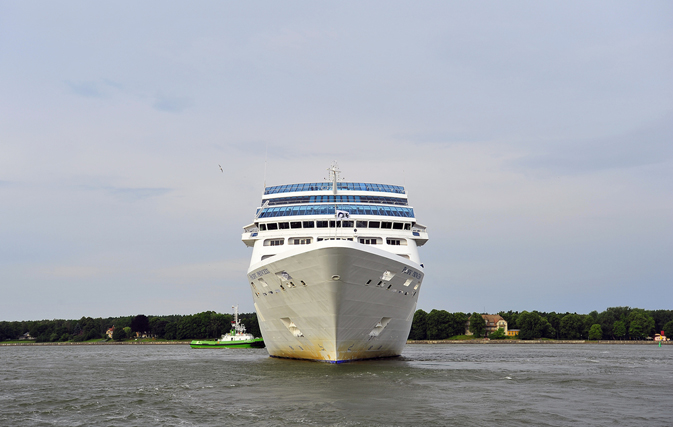MIAMI — Carnival’s Princess Cruises has pled guilty to seven felony charges and ordered to pay a record fine of US$40 million – the largest penalty of its kind in history – for dumping oily waste into the ocean.
After a whistleblower discovered the elaborate scheme three years ago, investigators have determined that the cruise line had been dumping thousands of gallons of contaminated water over a period of eight years.
During its investigation, the Justice Department found that ship engineers aboard the Caribbean Princess repeatedly polluted the ocean by using a ‘magic pipe’ to funnel water (a mixture of water, oil and chemicals) into a tank that held water from the ship’s sinks and showers, which in some places, can be dumped at sea.
The whistleblower was able to provide pictures from inside the ship, which proved the extreme lengths the cruise line took to cover up its criminal actions.
As part of the plea agreement, all Princess ships must participate in a court-supervised environmental compliance program. $10 million of the settlement will go toward community service projects that benefit marine environments.
“We’re sending a strong message in this case to the entire industry. The message is that lying to the Coast Guard and polluting the environment will be identified, investigated and vigorously prosecuted,” said Assistant Attorney General John Cruden.
In an official statement, Princess Cruises said it is “extremely disappointed” in its employees who violated the company’s policies and environmental law, and that it was aware of the situation back in August 2013, after which it launched its own internal investigation.
“As a result of our investigation we discovered practices, on some other ships, where we were operating out of policy and in violation of environmental law. We have reached a plea agreement with the DOJ, which was announced today.
Although we had policies and procedures in place, it became apparent they were not fully effective. We are very sorry that this happened and have taken additional steps to ensure we meet or exceed all environmental requirements.”
These steps, according to the company, includes restructuring its entire fleet operations organization, and increasing the scope and frequency of its training. It also invested millions of dollars to upgrade equipment to new ship standards.

